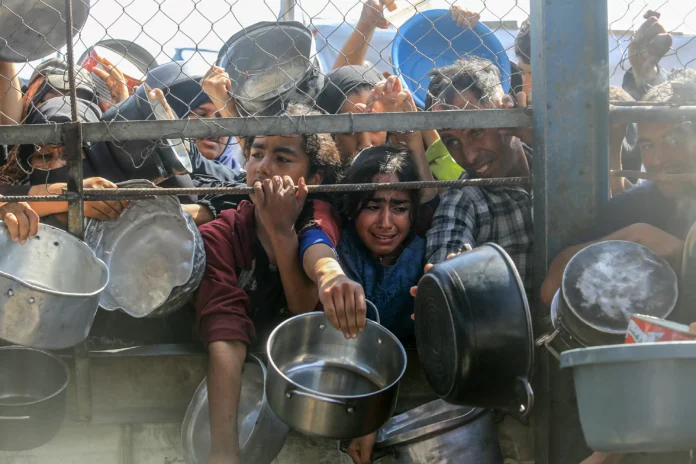Deadly shootings at Gaza aid centers force repeated closures, deepening hunger and fear among civilians.
Gaza, a small strip of land located on the eastern coast of the Mediterranean Sea, has been embroiled in conflict and humanitarian crisis for years. Amidst this turmoil, aid centers have become a lifeline for the civilians, providing them with basic necessities such as food, water, and medical aid. But these vital aid centers have come under attack, with deadly shootings causing repeated closures and deepening hunger and fear among the civilians.
In the latest incident, a shooting at the Al-Shifa Medical Complex, the largest hospital in Gaza, left several aid workers injured and forced the temporary closure of the facility. This has left thousands of patients, including women and children, without access to proper medical care and treatment. Such attacks on aid centers are not uncommon in Gaza, where violence and conflict prevail.
The shootings at aid centers not only put the lives of innocent civilians at risk, but they also have a ripple effect on the entire community. The closures of these centers mean that essential services and aid are disrupted, leaving the already vulnerable population in an even more dire situation. The people of Gaza are already facing a severe humanitarian crisis, with more than 60 percent of the population being food insecure and heavily reliant on aid.
The repeated closures of aid centers not only deepen hunger but also instill fear among the civilians. These centers are meant to be safe havens for those affected by the conflict, but they have now become targets for violence. This has created a sense of desperation and helplessness among the people, who fear for their safety and the safety of their loved ones whenever they seek aid.
Moreover, the attacks on aid centers have significant consequences for the aid workers who risk their lives to provide assistance to those in need. These workers often face great danger and work tirelessly to ensure that the civilians receive the aid they require. However, the recent shootings have put their lives in grave danger, making it even more difficult for them to carry out their humanitarian work.
The international community has condemned these attacks on aid centers and called for an end to the violence. The United Nations has stated that the protection of aid workers and civilians is essential and that attacks on aid centers are a clear violation of international humanitarian law. The UN has also urged all parties involved in the conflict to respect the neutrality of these centers and ensure the safety of aid workers and civilians.
It is crucial for all parties involved in the conflict to prioritize the safety and well-being of the civilians in Gaza. Targeting aid centers and causing harm to innocent civilians goes against the very values of humanity and must be stopped immediately. These centers are the last hope for many in Gaza, and their continued closure will only exacerbate the already dire situation in the region.
Additionally, the international community must come together to provide necessary support and aid to the civilians of Gaza. While the attacks on aid centers continue, it is essential to ensure that the civilians have access to the basic necessities of life. This includes food, water, and medical care, which are fundamental human rights that cannot be compromised.
In conclusion, the deadly shootings at Gaza aid centers have had a devastating impact on the civilians, causing repeated closures and deepening hunger and fear. The safety and protection of aid workers and civilians must be a top priority for all parties involved in the conflict, and the international community must step up to provide the necessary support to the people of Gaza. It is time to put an end to the violence and ensure that the aid centers can continue their vital work of providing assistance to those in need. Let us come together to bring hope and relief to the people of Gaza who have suffered for far too long.

